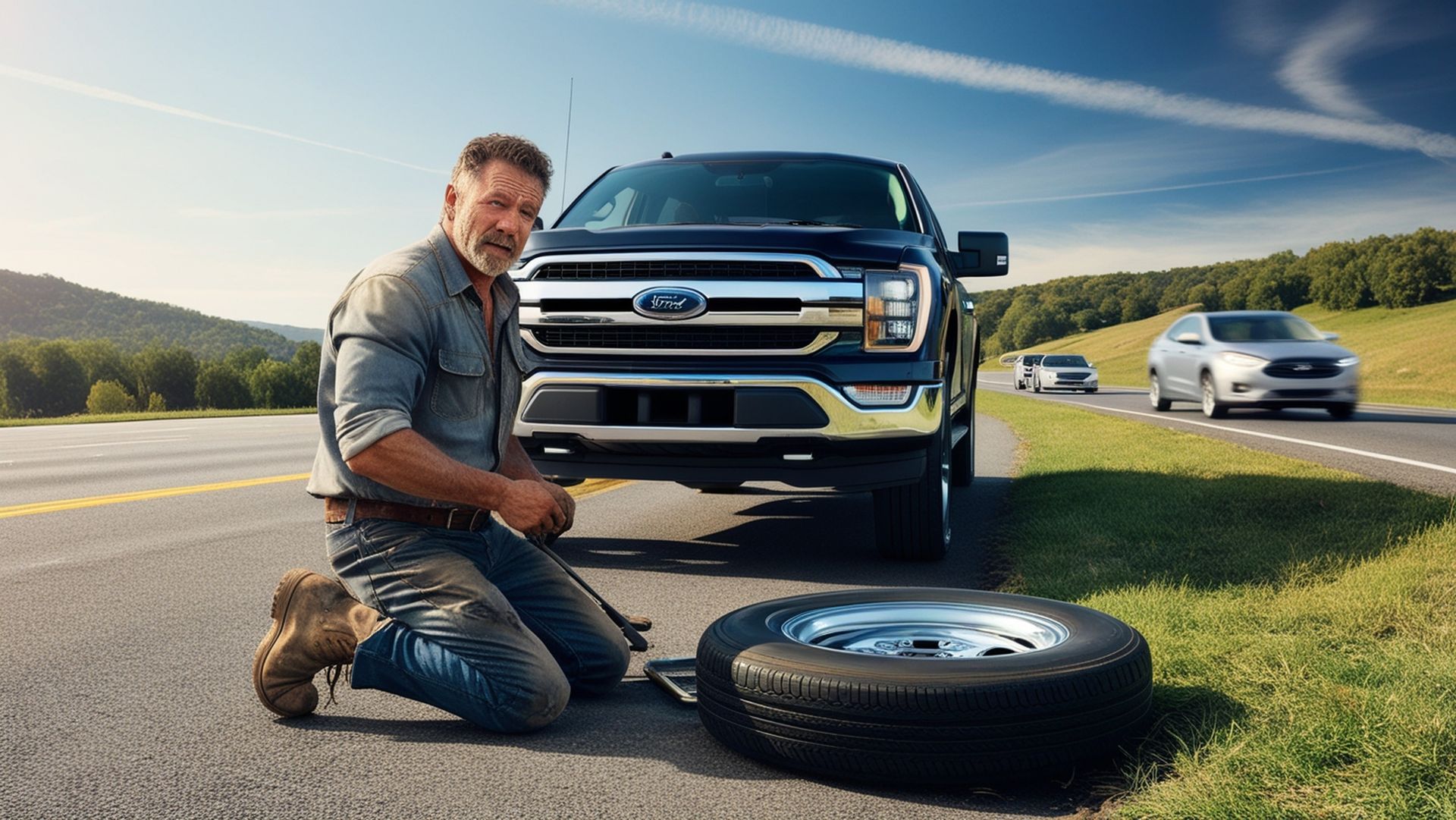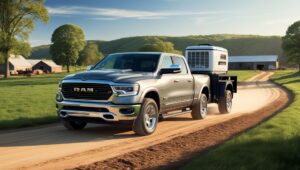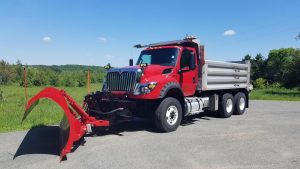From rugged workhorses modern pickup trucks have evolved into versatile vehicles that combine utility, performance, and comfort. Once solely the domain of farmers and tradespeople, today’s pickups appeal to a broad audience, from off-road enthusiasts to suburban families. This article explores the history, specifications, and benefits of modern pickup trucks, highlighting their importance in both personal and commercial use.
The Evolution of Pickup Trucks
The pickup truck’s origins can be traced back to the early 20th century, when manufacturers began modifying cars to carry heavier loads. The Ford Model T Runabout with Pickup Body, introduced in 1925, is often considered the first mass-produced pickup. Over the decades, pickup trucks grew in size, power, and capability, transitioning from basic utilitarian vehicles to the highly refined and multifunctional machines we see today.
In the 1950s and 1960s, pickups became more mainstream, with manufacturers offering more comfort and convenience features. The 1970s saw the introduction of compact pickups, catering to consumers who needed utility without the bulk of full-sized trucks. The 1990s and 2000s brought significant advancements in technology, safety, and luxury, transforming pickups into the versatile vehicles that dominate the market today.
Specifications of Modern Pickup Trucks
Modern pickup trucks come in various sizes and configurations, each designed to meet specific needs. Here are some common specifications and features found in today’s pickups:
- Engine and Performance:
- Engine Types: Pickup trucks are available with a range of engines, including four-cylinder, V6, and V8 options. Diesel engines are also popular for their towing capabilities and fuel efficiency.
- Horsepower and Torque: Horsepower typically ranges from 200 to over 700, depending on the model and engine. Torque, crucial for towing and hauling, can range from 300 to over 900 lb-ft.
- Transmission: Most pickups offer automatic transmissions, with some models providing manual options. Advanced 8-speed and 10-speed automatic transmissions are common, enhancing performance and fuel efficiency.
- Towing and Payload Capacity:
- Towing Capacity: Modern pickups are built to tow heavy loads, with capacities ranging from 5,000 to over 35,000 pounds. Features like trailer sway control and integrated brake controllers enhance towing safety.
- Payload Capacity: Depending on the model and configuration, payload capacities can range from 1,500 to over 7,000 pounds. Reinforced frames and advanced suspension systems support these capabilities.
- Dimensions and Configurations:
- Cab Styles: Pickups are available in regular cab, extended cab, and crew cab configurations. Crew cabs offer the most passenger space, with four full-sized doors and ample rear legroom.
- Bed Sizes: Bed lengths typically range from 5.5 feet to 8 feet, with some models offering multiple bed length options to suit different needs.
- Off-Road Capabilities:
- 4×4 Systems: Four-wheel-drive systems are standard on most off-road-oriented pickups, providing enhanced traction and control. Features like locking differentials, skid plates, and off-road suspension systems are common.
- Ground Clearance: Higher ground clearance and off-road tires allow pickups to navigate rough terrain with ease. Some models offer adjustable air suspension for added versatility.
- Interior and Technology:
- Comfort and Convenience: Modern pickups feature spacious, well-appointed interiors with premium materials and advanced climate control systems. Heated and ventilated seats, leather upholstery, and panoramic sunroofs are popular options.
- Infotainment Systems: Touchscreen displays, smartphone integration (Apple CarPlay and Android Auto), navigation systems, and premium audio systems enhance the driving experience.
- Driver Assistance and Safety: Advanced driver-assistance systems (ADAS) such as adaptive cruise control, lane-keeping assist, blind-spot monitoring, and automated emergency braking are available on most models.
- Fuel Efficiency:
- Fuel Types: Gasoline and diesel engines dominate the market, but hybrid and electric pickups are emerging. Manufacturers are focusing on improving fuel efficiency through turbocharging, cylinder deactivation, and lightweight materials.
- Miles per Gallon (MPG): Fuel economy varies widely, with compact pickups achieving up to 30 MPG and full-sized models ranging from 15 to 25 MPG. Diesel engines often provide better fuel efficiency, especially under heavy loads.
Benefits of Pickup Trucks
- Versatility:
- Pickup trucks are incredibly versatile, capable of handling everything from daily commuting to heavy-duty towing and off-road adventures. Their spacious beds and powerful engines make them ideal for a wide range of tasks.
- Durability:
- Built to withstand tough conditions, pickups are known for their durability and longevity. High-strength steel frames, robust suspension systems, and powerful engines contribute to their ruggedness.
- Comfort and Convenience:
- Modern pickups offer a high level of comfort and convenience, rivaling many luxury vehicles. Spacious interiors, advanced technology, and a smooth ride make them suitable for long trips and daily use.
- Safety:
- Equipped with advanced safety features, pickups provide excellent protection for occupants. High-strength frames, multiple airbags, and sophisticated driver-assistance systems contribute to their safety ratings.
- Towing and Hauling:
- The ability to tow and haul heavy loads is a significant advantage of pickup trucks. Whether for work or recreation, pickups can handle trailers, boats, campers, and more with ease.
Innovations and Future Trends
The future of pickup trucks is marked by exciting innovations that promise to enhance performance, efficiency, and sustainability:
- Electrification:
- Electric pickups are poised to revolutionize the market. Models like the Tesla Cybertruck, Rivian R1T, and Ford F-150 Lightning offer impressive performance, zero emissions, and cutting-edge technology.
- Hybrid Powertrains:
- Hybrid pickups combine gasoline engines with electric motors to improve fuel efficiency and reduce emissions. These models provide a balance of power and efficiency, appealing to a broad audience.
- Advanced Materials:
- The use of advanced materials like aluminum and high-strength steel reduces weight and improves fuel efficiency without compromising strength and durability.
- Autonomous Driving:
- Autonomous driving technology is gradually making its way into pickups. Features like adaptive cruise control, automated parking, and lane-keeping assist are becoming standard, enhancing safety and convenience.
- Connectivity and Infotainment:
- Future pickups will offer even more advanced connectivity and infotainment options. Enhanced navigation systems, augmented reality displays, and seamless smartphone integration will be commonplace.
Conclusion
Pickup trucks have come a long way from their humble beginnings, evolving into sophisticated and versatile vehicles that cater to a wide range of needs. With powerful engines, advanced technology, and impressive capabilities, modern pickups offer a unique blend of utility, comfort, and performance. As innovations continue to shape the industry, pickup trucks will remain a vital part of the automotive landscape, meeting the demands of both personal and commercial users.




